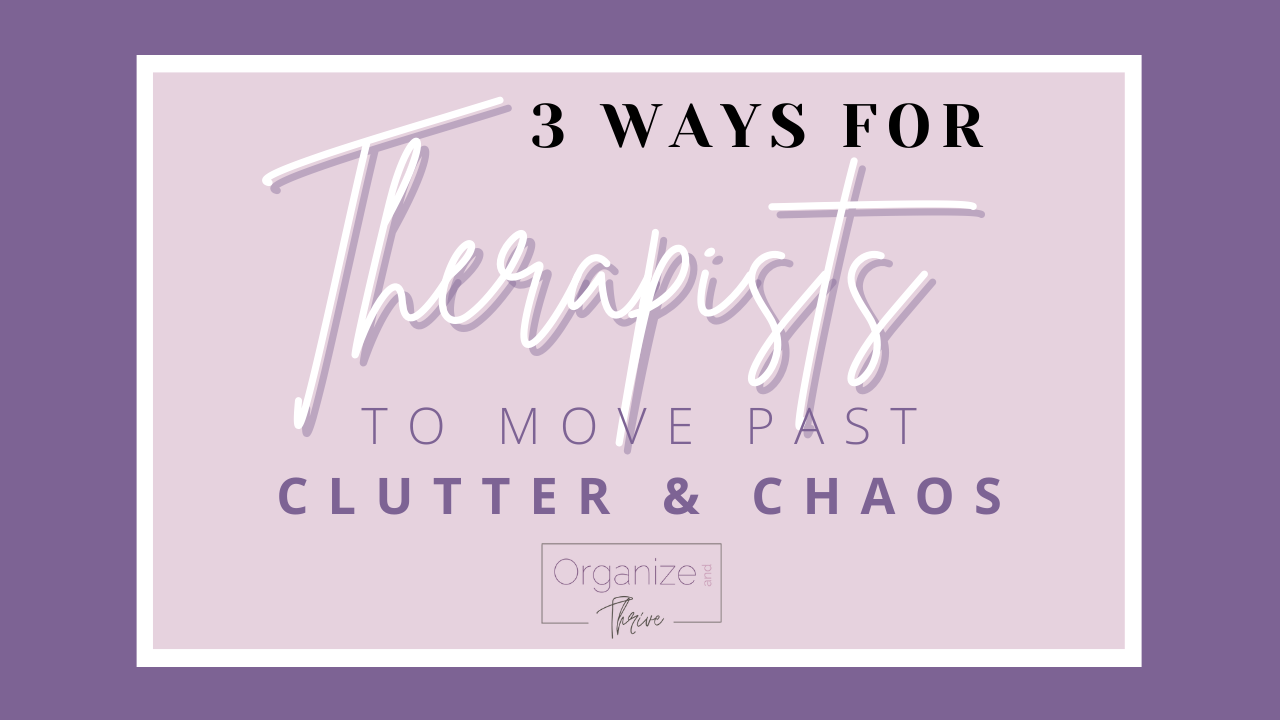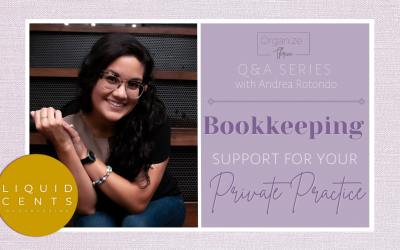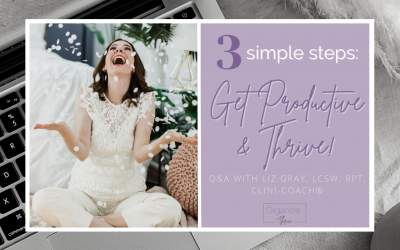Summary: Have you ever felt so rushed that you wore two different shoes to work? Or looked at the big pile of papers in your office and didn’t know whether you wanted to scream, cry, or run away? When our brains & bodies are over-stressed, over-tired, and on overdrive, it is difficult (and sometimes impossible) to make thoughtful, rational decisions. Let’s explore how to move past our clutter and chaos.
Consequence #1: More likely to make mistakes
When we are rushed, our brains are not thinking straight. We are overstimulated, hyperaroused, and plain ‘ole frazzled!
A few months after my husband and I got married and bought a house (all in the same week- I don’t recommend this), we upgraded my 12 year-old Toyota Corolla to a RAV4. The salesperson was so convincing that we walked out of the dealership with 2 new cars (again, I don’t recommend this).
The following weekend, I overslept and was frantically trying to get to my haircut appointment on time. Although I knew there were 2 cars in my driveway, I was rushing and inadvertently backed my car into my husband’s car.
Two brand new cars + a careless mistake = thousands of dollars in costs (even though I was literally going 3 mph). While I can now tolerate the story, I still cringe every time I think about it because it was so, so preventable.
Tip # 1: Ground yourself until your brain goes back online.
- I wish I could tell you, “here’s the secret to avoiding all mistakes.” The truth is, mistakes are called mistakes for a reason! Some are preventable and some are not. In the situation (described above), all I needed to do was take 30 seconds to breathe and give myself time to calm my body and brain down.
- The next time you’re feeling rushed and frazzled, allow yourself a few minutes to pause and ground yourself. It will make a huge difference and hopefully prevent an expensive mistake like mine!
Consequence #2: More likely to forget important things
When we are overwhelmed and frazzled, it can feel like our brains are both working on overdrive and not retaining basic information. Like when you’re pedaling really fast but going nowhere.
A few months into the pandemic, I was at the grocery store when a client messaged, “hey, are we still meeting today?” My heart dropped into my stomach when I saw that message.
It turns out, I thought we were meeting 15 minutes later than they thought we were. It ended up being no big deal, but it took a few minutes to get my heart rate back to normal!
The pandemic has made me (and I’m sure, you) forgetful. It has also taught me so much about myself and how much I can tolerate.
For example, I now know my ideal number of sessions is 16-18 per week. When I see 19-21 clients, I start to feel unraveled, and anything over 22 leaves me both scattered and depleted.
During the busy weeks, it is harder to remember details about my sessions and more difficult to stay present in session. What’s your comfortable number?
Tip # 2: Check and adjust your schedule.
- On a small scale, make sure you write down any schedule changes in one or two places. Review your schedule at the beginning and/or end of your workday. If it helps, put reminders in your phone that pop up 10-15 minutes before each session.
- On a larger scale, start to take notice of the days/weeks that feel like you’re on the struggle bus and days/weeks that feel more manageable.
- How many clients did you see? Which clients? Did you have breaks or go back-to-back? Did you start early or late? Was it a lighter week or did you cram clients into every available spot and skip lunch multiple days?
- If you know you need to make some changes but don’t know where to start, check out April Snow’s course, Burnout to Balanced: How to Create a Sustainable Schedule* and/or reach out to Liz for individual support!
Consequence #3: More likely to get hurt
When we are living in literal and emotional clutter and chaos, we are more prone to injuries and accidents.
The week that my husband, Bailey, and I moved from our downtown Chicago apartment to my childhood home during the pandemic, I cut my hand so deep that I needed stitches.
The 3+ times that Bailey has been to the emergency room, I had either just moved or was planning a move. (In case you’re wondering, she ate raisins, a whole dark chocolate bar, and an anxiety pill. The little stinker didn’t learn her lesson- and apparently neither did her momma).
Do you sense a theme?
Some days, I blame myself for being careless and reckless in those moments. On days when I feel a little more self-compassion, I’m able to remind myself, “you were stressed out, overwhelmed, and unsettled in your environment, You did not mean to hurt yourself or Bailey.”
Tip #3: Slow down. Like, way down.
I would like to extend some of the compassion I mentioned above to you.
- When you are living in chaos- whether it’s 1. physical chaos of papers everywhere, 2. emotional chaos of your own stuff + your clients’ stuff, and/or 3. digital chaos and feeling behind in your practice- my first recommendation is that you take a break.
- A break might mean 30 seconds. Or 15 minutes in between sessions. Or maybe a few days (or a week) off. The amount of time doesn’t matter as much as the quality of the time off.
- Our bodies are very good at letting us know when we’ve reached (or, surpassed) our limits. So please, listen to yours.
Not sure where to start?
Whether you have internal clutter, physical clutter, and/ or digital clutter, I (Liz)- a Highly Sensitive Therapist and Systems + Mindset Clini-Coach® will work with you to create a customized plan to ditch the overwhelm. You don’t have to continue drowning… let me help you move past your clutter and chaos.
Set up a clarity call and let’s chat!
* Contains an affiliate link






0 Comments